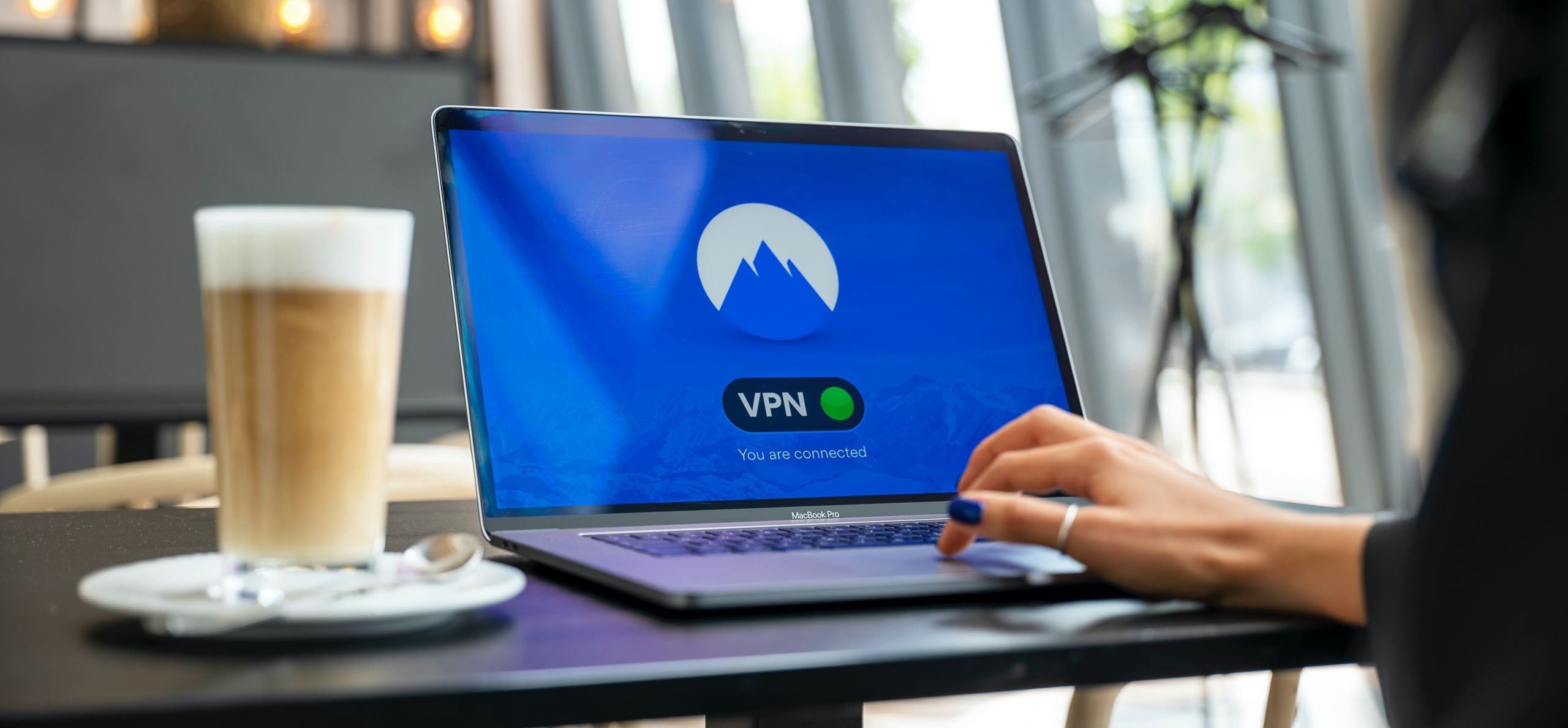It’s quite likely you’ve heard of Virtual Private Networks (VPNs). They’re used by many to access better shows on overseas streaming services, such as Netflix in the US, or to work from home on company laptops. But VPNs are useful for a lot more than keeping your boss happy or you entertained.
A VPN can provide you with the freedom to access region-specific content and files, and help buff up your online security. And, better yet, they’re often cheap and easy to install and use.
In this Canstar guide we go through everything you need to know about VPNs, and why you should use one.
In this article:
- What is a VPN?
- Why use a VPN?
- What does a VPN not do?
- How do you use a VPN?
- Are VPNs legal?
- How to choose a VPN Provider
- How much does a VPN cost?

What is a VPN?
A VPN acts like a middle man between your device and the internet, helping to hide who (and where) you are and what you do online. But to fully understand what a VPN is, you need to first understand what an Internet Protocol (IP) address is, and how it’s used when accessing the internet.
An IP address is a unique code given to each device as it accesses the internet. It contains information about geolocation and helps the internet keep things relevant for users. It’s why you can Google “Chinese food” and get results from restaurants in your neighbourhood, and not a continent away.
Although your device’s IP address changes each time you log on (unless you’ve request and pay extra for a static IP address from your internet provider), IP addresses are traceable back to your machine and your internet activity.
And while this information isn’t public, it isn’t encrypted, either. So anyone that gets access to the IP addresses you’ve used, whether your internet provider, the government or your employer, etc, can see everywhere you have visited.
So what does a VPN do?
A VPN is like a middle man between your IP address and the internet. It serves two purposes:
- Firstly, your VPN provider encrypts your data, hiding it from anyone that could gain access. This means that instead of someone seeing your request to access website A, they’ll simply see a bunch of nonsensical code.
- Secondly, it passes this data through one of its own servers, replacing your personal IP address with one of its own. These servers can be located all over the globe. So an Auckland IP address could be replaced by one in Texas, Paris, Perth, Osaka, or countless other locations (typically of your choosing).
This hides your unique IP address and your internet activity from interest parties.
Why use a VPN?
There are several reasons why a VPN can be useful:
Accessing region-specific content
This is probably the most well-known use of VPNs. Lots of websites, such as YouTube, Comedy Central and BBC iPlayer, have blocked access to some or all of their content to users in particular geographical areas. Furthermore, sites such as Netflix offers different content depending on where you are located.
Because VPNs reroute IP addresses through servers of their own, they can hide users’ true locations. And because VPN providers typically have thousands of servers located all over the globe, subscribers can effectively change their online locations to wherever they want.
For example, you could choose to reroute your connection through a server in the UK, tricking BBC iPlayer into letting you access its content. Or, you could change to a US-based server and get access to Netflix’s US library, or sites unavailable in NZ, like Hulu and HBO Max.
→Related article: Netflix to Neon: the Top Streaming Shows in NZ
Protecting your privacy
This is another popular use for VPNs. As mentioned above, VPNs encrypt your data, so even if someone was to gain access to your activity, they couldn’t see what you’ve been up to.
This is especially useful when using public wi-fi networks in places like hotel lobbies and coffee shops. These networks are less secure, and someone who knows what they’re doing can gain access to your information. If you’ve been logging into your Facebook account, emails and online banking, some very sensitive information could potentially find its way into the wrong hands.
By encrypting your data, a VPN helps protect you online, shielding information from prying eyes. It is, however, worth noting that this doesn’t mean it provides protection from malware and viruses that can infect your device.
→Related article: How to Keep Your Online Browsing Private and Avoid Trackers
Accessing local networks and intranets remotely
VPNs are an essential part of the growing trend of working from home. Businesses can set up a VPN to reroute a worker’s connection, wherever they are, through the company’s secure server.
This allows workers to safely access internal files, intranet and printers as if they were in the office. Once again, it also encrypts data to provide added security when dealing with potentially sensitive information.
To beat censorship
While it’s not much of an issue for us here in New Zealand, certain governments censor content. The most famous example is the Great Firewall of China, which restricts access to many popular sites like Facebook, YouTube, TikTok and Google.
IP addresses are used to locate your device and are a key way that China and other countries such as Vietnam, Cuba, and Iran block content. By using a VPN to hide your IP address, and replace it with one located outside of the censored country, you can gain access to these sites.
This can be helpful for travellers and exchange students who find access to some of their commonly used websites restricted while overseas.
What does a VPN not do?
As mentioned above, a VPN is designed to keep what you’re doing a secret from any third parties. But it doesn’t stop the websites you visit from tracking or identifying you.
For example, if you’re using a public wi-fi network, and log into your Google account while using a VPN, a hacker couldn’t see this and wouldn’t be able to gain access to your passwords or information. But Google will still know it’s you. As will any other companies Google works with to track and collect data.
In reality, this means those pesky targeted ads will still follow you around the web, even with a VPN.
And even if you don’t log into any accounts, many websites use tools such as cookies and browser fingerprinting to store information about you and follow you across the net. So they might still be able to figure out who you are and act accordingly. Again, this is most likely in the form of targeted ads.
How do you use a VPN?
For the most part, VPNs are pretty simple to run. Most providers have an app for your phone and/or extension for your web browser. Simply open it, log in, choose where you want your server to be located (if given the option) and click connect. Your provider will do the rest.
Obviously, this is a simplified explanation, and different providers have different layouts and interfaces. But this should more or less be the process.
Are VPNs legal?
First things first, whenever we are talking about the law, we need to stress that this isn’t legal advice.
But here in New Zealand, using a VPN is perfectly legal. Businesses, universities and governments use them all the time.
In fact, using a VPN to access geo-blocked content is allowed, too. So even though faking your location to access content not available to you can sound a little dodgy, you probably won’t get in trouble with the law. That means if YouTube tells you that a video isn’t available in your country, you can just use a VPN based in, say, the US, to be able to watch it.
However, using a VPN to get around region blocks can put you in breach of a website or service’s user agreement, such as when users are required to be residents of the country of purchase. VPNs are just like torrenting – while both are strongly associated with illegal downloading, they’re both legal tools under the right circumstances.
If you’re not sure, it pays to carefully read the small print of your VPN and content providers’ contracts.
How to choose a VPN provider
A key thing to remember is that your VPN provider is the one rerouting your IP address and encrypting your information. And in order to do this, they need to know your information. So it’s important you choose a provider you can trust.
There’s no point hiding your information if you can’t trust the person that’s hiding it for you.
When choosing a VPN, you have the choice of free or paid services. And while free is always tempting, we don’t recommend you opt for one of these services for a number of reasons:
- Free services have to make money somehow, and it’s likely your information is being sold on to third-party advertisers and trackers
- They tend to have limited use, often enforcing daily data caps and/or providing only a few server locations (often not giving you the option to choose the location)
- Sites such as Netflix have caught on to VPNs, and have made it tougher for them to bypass its systems. A free VPN may not be as effective at accessing geo-blocked streaming content as a quality, paid service
- A VPN adds extra steps to the internet connection process, which can in turn slow down your connection. Premium paid services have excellent servers that shouldn’t impact your internet speed by much. But a lower quality free service may send you back to the days of dial-up!
What should you look for in a VPN?
Some things to consider when choosing a VPN are:
- Research and read reviews: There’s plenty of information out there about VPNs. Read up on user reviews and/or some of the countless articles ranking the best VPNs out there
- Privacy: No one really reads the terms and conditions for most things, even though we know we should. When something as important as your privacy and security is at stake, it’s doubly important. Read carefully through the VPN provider’s website and privacy policy. A good example of something to look for is a ‘no-logging’ policy, which means they do not collect, or log, any information transmitted through the network
- Speed: As mentioned above, the process of using a VPN can slow down your connection, but certain providers are faster than others
- Location: If you’re in New Zealand but want to watch something from overseas, make sure you have a VPN that covers that country. Otherwise, if you’re going overseas and want access to content back here in New Zealand, make sure your provider has NZ servers
- Encryption: There are a few different methods of encrypting data. Do your research and make sure your VPN provides sufficient data encryption
- Malware blocking: A great feature that many VPNs include is blocking any potentially malicious sites or ads that could risk your security through malware protection, ad blocking and tracker blocking
- Simultaneous connections: If you’re a small business, or want to share a VPN with friends or family, being able to connect multiple devices at the same time can be a big plus
How much does a VPN cost?
A VPN will typically cost you about $15-20 a month. If paying monthly…
But by signing up for a longer term, you can get significantly cheaper prices. These often work out to just a couple of dollars a week. Not a bad price if it opens up content you can’t currently access.
Below we’ve listed some of the most popular VPNs and the prices of each. This is by no means a comprehensive list of VPNs available, nor is it an endorsement of any particular provider. So we recommend you do your own research.
It’s also worth noting that prices are shown in US$, which is likely what you will be billed in.
|
VPN |
Price Per Month USD* | |||
|---|---|---|---|---|
| 1 Month | 6 Months | 1 Year | 2 Year | |
| NordVPN | $11.99 | – | $4.99 | $3.99 |
| ExpressVPN | $12.95 | $9.99 | $6.67 (extra 3 months included free in the first year) | – |
| SurfShark | $12.95 | – | $3.99 | $2.49 (free antivirus included) |
| Private Internet Access (PIA) | $9.95 | – | $3.33 | – |
| IPVanish | $10.99 | – | $3.99 (includes ransomware and malware protection) | – |
| CyberGhost | $12.99 | – | $4.29 | $3.25 |
| ProtonVPN | $9.99 | – | $5.99 | $4.99 |
*All prices are shown in USD and taken from retailer websites. They may include promotional discounts and are correct as of June 2022.
Compare broadband providers for free with Canstar!

About the author of this page
This report was written by Canstar Content Producer, Andrew Broadley. Andrew is an experienced writer with a wide range of industry experience. Starting out, he cut his teeth working as a writer for print and online magazines, and he has worked in both journalism and editorial roles. His content has covered lifestyle and culture, marketing and, more recently, finance for Canstar.
Enjoy reading this article?
You can like us on Facebook and get social, or sign up to receive more news like this straight to your inbox.
By subscribing you agree to the Canstar Privacy Policy


Share this article